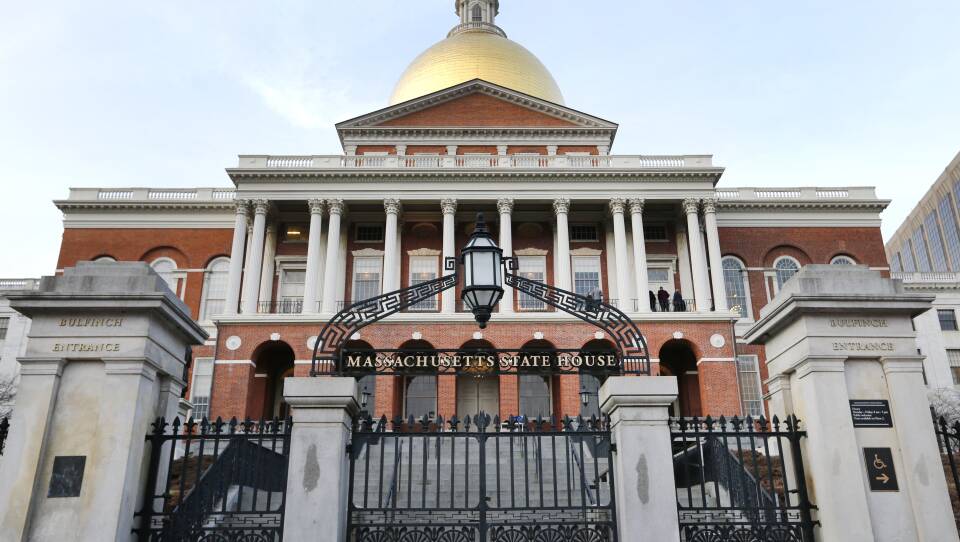Massachusetts is the last state in the country where lawmakers have not finalized a new state budget, and that status is set to change on Monday.
Two weeks after the fiscal year began, lead budget negotiators Rep. Aaron Michlewitz and Sen. Michael Rodrigues announced Thursday that they’d reached an “agreement in principle,” reconciling the different House and Senate versions of the spending plan.
“Staff are currently working to complete the work necessary to finalize the agreement,” the two legislators said in a statement. They said they expect the compromise version to be filed “in the coming days” so the House and Senate can take final votes on it Monday afternoon and ship it to Gov. Charlie Baker.
The House and Senate each passed budget bills spending similar amounts of money — nearly $50 billion — but allocated the funding in different ways, and each also tacked on its own set of policy proposals. The bottom line could grow if the negotiators adopt both branches’ spending priorities.
The biggest difference in spending between the two branches is their approaches to funding early education and care. Both agreed to make phone calls free for people incarcerated in prisons and jails in Massachusetts, but diverged on exactly how to do so.
Among other differences, the Senate’s budget includes $32 million more in unrestricted local aid for cities and towns. Continuing an effort that’s been supported by federal aid during the pandemic, the House version has $110 million to provide another year of universally free school meals, while that money is not in the Senate bill.
The Senate added language into its budget creating new protections for providers of reproductive and gender-affirming health care and their patients, shielding them against actions or investigations other states may pursue in connection with services that are legal here. That measure is unlikely to end up in the final budget, now that the House and Senate have each approved standalone bills tackling the same concept.
A key difference between the two standalone reproductive health care bills is how they update an existing state law allowing abortions after 24 weeks of pregnancy. The House wants to expand the situations in which those abortions are allowed to include cases of a "severe" fetal anomaly. The Senate, instead of adopting the severe anomaly language, seeks to clarify that decisions around later abortions should be made between the treating physician and their patient.
The House and Senate budgets have been before a conference committee, a six-lawmaker panel that privately hashes out the differences when the two branches disagree on legislation, since early June. Bills written by conference committees can’t be amended, and are only subject to a yes-or-no vote.
Baker will have 10 days to review the bill once lawmakers pass it, and he will be able to veto or offer amendments on individual items within it.
The annual budget is one of several big-ticket items that lawmakers are scrambling to finish before their formal sessions end for the year on July 31. Resolving the budget can open up bandwidth for the Legislature to reach other deals.
The abortion protections bill is now before a conference committee for negotiations, as are other bills dealing with energy and climate policy, the legalization of sports betting, mental health care access, cannabis industry reforms and more.
“We have — what, six or eight conference committees going on? It would be wonderful to resolve all of them,” Senate President Karen Spilka said Wednesday. “I’m hopeful.”








